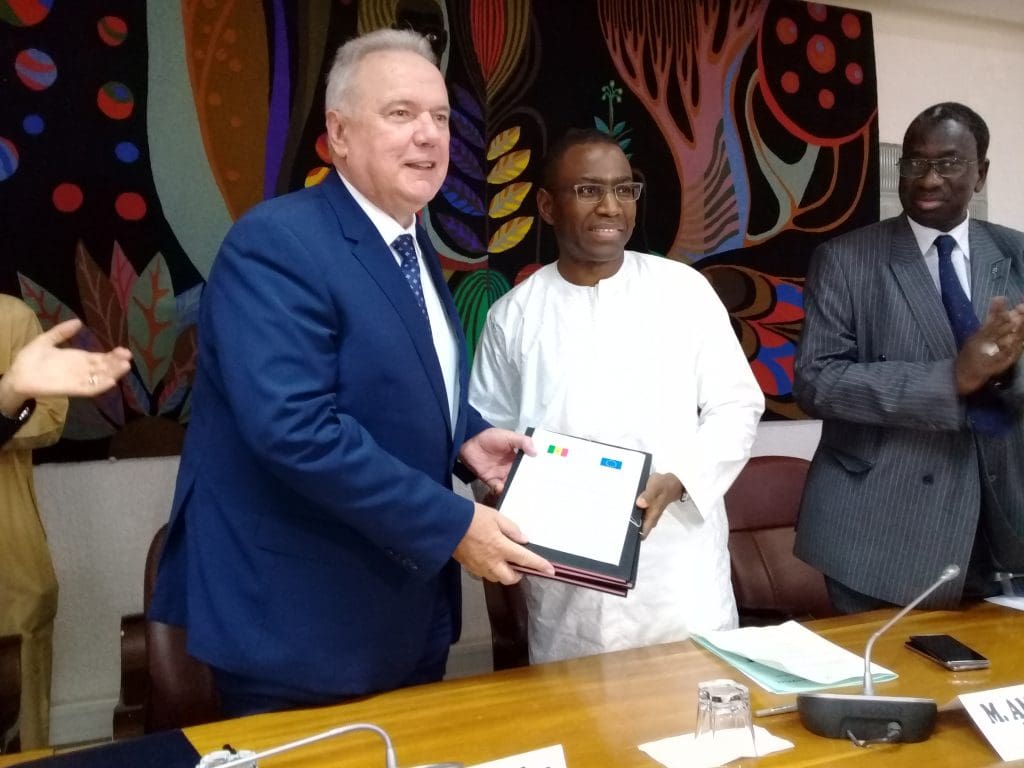As part of the 11th European Development Fund (EDF), the European Union has approved €27 million, about 18 billion CFA francs for the funding of three development projects in Senegal.
Senegal’s Minister of Economy, Planning and Cooperation, Amadou Hott, and the European Commissioner for International Cooperation and Development, Neven Mimiça signed the three conventions Friday in Dakar.
These three conventions are mainly aimed at supporting the development of renewable energies for universal access to electricity for an amount of €20 million or about 13.120 billion CFA francs.
They will also help the civil society for better governance with €4 million or about 2.6 billion CFA francs as well as strengthen Senegal-European Union cooperation with €3.5 million or about 2.3 billion CFA francs.
The first project, which objective is fully in line with the June 2017 European Consensus on Development, “is an effective opportunity for job creation in the most disadvantaged rural areas and will increase people’s access to electricity and better quality basic social services”, Minister Hott said.
The second project is part of the European strategy to support civil society. It will help upgrade the role of national civil society in the three priority sectors, in particular sustainable agriculture and food security, natural resource management, including mining and extractive resources, and finally migration and youth employment.
The third and final project on support for Senegal-EU cooperation is expected to contribute to maximising the efficiency and impact of EU aid on beneficiaries.
“All this funding provided by the European Union is grants, which means that it is non-repayable funding, the Minister stressed, adding that the EU remains one of Senegal’s main development partners.
According to Amadou Hott, the European institution’s support for Senegal has grown over the years and covers sectors essential to the country’s economic and social development.
He added that these important funds reflect EU’s commitment to support the efforts already undertaken by the government in areas that contribute significantly to Senegal’s economic and social development.
“These interventions are perfectly in line with the axes of structural transformation of the economy and growth as well as human capital and social protection and sustainable development. They also promote the involvement of civil society actors in the process of citizen building through capacity building and greater ownership of the Emerging Senegal Plan”, he said.
ARD/te/lb/APA


